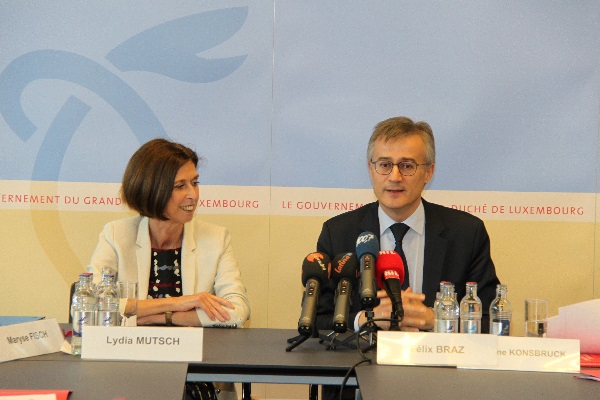
On Wednesday, the Minister of Equal Opportunities, Lydia Mutsch, and Minister of Justice, Félix Braz, presented the government's strategy for the supervision of prostitution in Luxembourg.
The strategy draws on the first National Action Plan (NAP) for Prostitution and the draft law for strengthening the fight against the exploitation of prostitution, pimping and human trafficking for sexual purposes.
Prostitution itself is currently legal in the Grand Duchy, but activities involving profiting from the act, such as brothels and prostitution rights, are not permitted.
Both ministers highlighted the major consulting work performed upstream of the strategy, namely the conclusions of the "Prostitution" platform presented in November 2014, ministerial visits abroad to the Netherlands and Sweden in 2015 and the parliamentary debate on prostitution in Luxembourg in April 2015.
For her part, Minister Mutsch emphasised "the importance of providing a comprehensive concept that includes both legal measures reinforcing the fight against the exploitation of prostitution, pimping and human trafficking for sexual purposes, as well as measures to strengthen psychosocial assistance to the persons concerned."
The Minister cited these two components as complementary and stated that they meet the ambitious targets that the government has set out in this field, namely to reduce violence against prostitutes; protect minors; enhance cooperation between public institutions and stakeholders to better understand pimping and human trafficking; improve health and security conditions for prostitutes; develop an "EXIT" strategy for prostitutes wishing to leave the trade; strengthn street work in collaboration with the City of Luxembourg; and implement measures for emotional and sexual education contained in the National Action Plan.
The minister Félix Braz stated that strengthening the legal framework has necessitated changes to the Criminal Code and Criminal Procedure Code. These amendments include the institutionalisation of the "Prostitution" platform as a standing committee and the creation of synergies with the "Trafficking" monitoring committee.
Other changes involved legislative measures recommended by the General Prosecutor and the Grand Ducal Police and the "Trafficking" monitoring committee, as well as the introduction of penalisation if it turns out that "it involves a minor, particularly a vulnerable person or victim of sexual abuse in terms of exploitation of prostitution, pimping or human trafficking for sexual puproses with the possibility of not exercising public action against the client under certain conditions (client testimonial)".
The two ministers concluded that this strategy takes into account the specificities of Luxembourg's own prostitution context. They expressed the concept as one that focuses both on strengthening social measures and on repressive measures to consistently fight against the dangers linked to prostitution.
Photo by MJUST (L-R): Lydia Mutsch; Félix Braz









